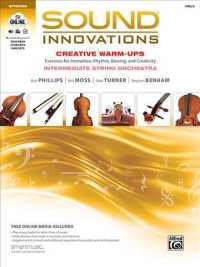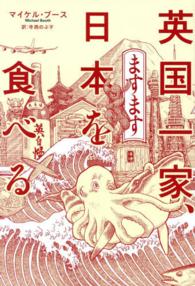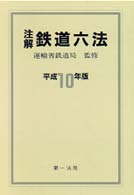- ホーム
- > 洋書
- > 英文書
- > Science / Mathematics
基本説明
This book pairs classic and contemporary readings in the philosophy of science with milestones in scientific discovery to illustrate the foundational issues underlying scientific methodology.
Full Description
From their grade school classrooms forward, students of science are encouraged to memorize and adhere to the 'scientific method' - a model of inquiry consisting of five to seven neatly laid-out steps, often in the form of a flowchart. But walk into the office of a theoretical physicist or the laboratory of a biochemist and ask, 'Which step are you on?' and you will likely receive a blank stare. This is not how science works. But science does work, and here award-winning teacher and scholar Steven Gimbel provides students the tools to answer for themselves this question: What actually is the scientific method? "Exploring the Scientific Method" pairs classic and contemporary readings in the philosophy of science with milestones in scientific discovery to illustrate the foundational issues underlying scientific methodology. Students are asked to select one of nine possible fields - astronomy, physics, chemistry, genetics, evolutionary biology, psychology, sociology, economics, or geology - and through carefully crafted case studies trace its historical progression, all while evaluating whether scientific practice in each case reflects the methodological claims of the philosophers.
This approach allows students to see the philosophy of science in action and to determine for themselves what scientists do and how they ought to do it. "Exploring the Scientific Method" will be a welcome resource for introductory science courses and all courses in the history and philosophy of science. Readings include: Aristotle from "Posterior Analytics and Physics"; David Hume from "An Enquiry Concerning Human Understanding"; Thomas Kuhn from "The Structure of Scientific Revolutions"; Bruno Latour, "The Science Wars: A Dialogue"; and, Karl Popper from "The Logic of Scientific Discovery".








